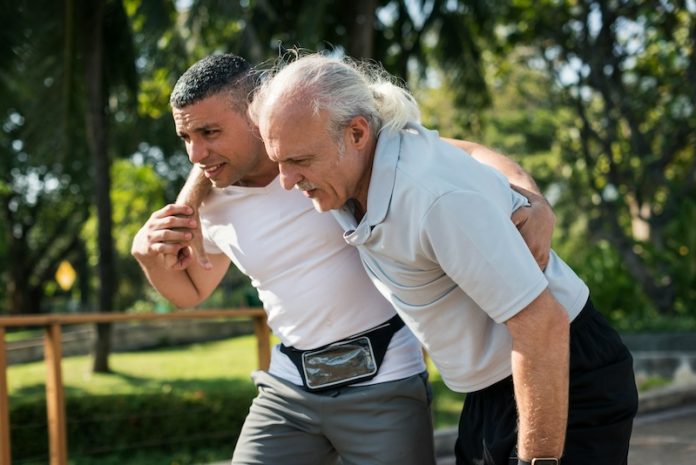
As we grow older, it’s normal to notice a decline in physical strength. But new research from Ohio University suggests that the real cause of this weakness may not lie solely in our muscles. Instead, the issue might be related to how our brain and nerves function.
This discovery could change how we understand aging and muscle weakness, and it might lead to better ways to help older adults stay strong and mobile.
A Unique Experiment
The research, led by Brian Clark, focused on 66 older adults, most of whom were in their 70s. The participants were divided into three groups based on how well they performed in a simple strength test. In the test, they were asked to push with their leg muscles against resistance as hard as they could.
After measuring their initial strength, the researchers used electrical stimulation on the leg muscles. This stimulation helped them see if the muscles could produce more force when given an extra boost from outside.
If a muscle generated more power after the stimulation, it meant that the weakness wasn’t just because of muscle problems, but also because of other factors, like nerve function.
The results showed something surprising. The weakest participants saw a 14.2% increase in force after stimulation—twice the improvement of the stronger group.
This indicated that the nervous system, which sends signals from the brain to the muscles, plays a big role in muscle strength as we age.
In other words, the muscles themselves might still be capable, but the problem lies in the brain and nerves not effectively communicating with them.
A New Approach to Tackling Weakness
This finding could have a major impact on how we address muscle weakness in older adults. Dr. Clark emphasized that the nervous system is crucial for muscle function. Nerves send signals from the brain and spinal cord to activate muscles.
So, if there are problems in the nervous system, the muscles may not perform at their full potential, leading to weakness and limited mobility.
The researchers suggest that more studies are needed to fully understand the connection between the nervous system and muscle function as we age.
But these early insights could lead to new therapies that focus on improving nerve health, not just muscle strength. This shift in focus could help older adults maintain their physical abilities and quality of life.
What Can Be Done Now?
Currently, regular exercise is the most effective way to keep muscles strong in older age. However, this study suggests that focusing solely on muscle strength might not be enough.
Exercise programs should also include activities that challenge the nervous system, such as balance training or coordination exercises, which might help keep the brain and nerves sharp.
There are also potential future treatments to explore. Techniques like nerve stimulation could offer new ways to boost nerve health and reduce age-related weakness.
However, researchers stress that these treatments need to be carefully tested to make sure they are safe and effective for older people.
A New Path Forward
This study highlights how important the nervous system is in maintaining muscle strength as we age. By looking at the problem from a different angle, scientists may be able to find new and better ways to help older adults stay active and healthy.
Addressing both the brain and the muscles could lead to more comprehensive solutions.
The research, published in JAMA Network Open, shows that tackling age-related weakness isn’t just about focusing on the muscles. It’s about understanding the role of the brain and nerves, too.
As scientists continue to explore these connections, there’s hope that we’ll find new strategies to help older adults stay mobile and enjoy a better quality of life.
This groundbreaking study, led by Brian Clark and his team, takes us one step closer to understanding the true causes of muscle weakness in aging, paving the way for more effective interventions in the future.
If you care about muscle, please read studies about factors that can cause muscle weakness in older people, and scientists find a way to reverse high blood sugar and muscle loss.
For more health information, please see recent studies about an easy, cheap way to maintain muscles, and results showing these vegetables essential for your muscle strength.
Copyright © 2024 Knowridge Science Report. All rights reserved.



